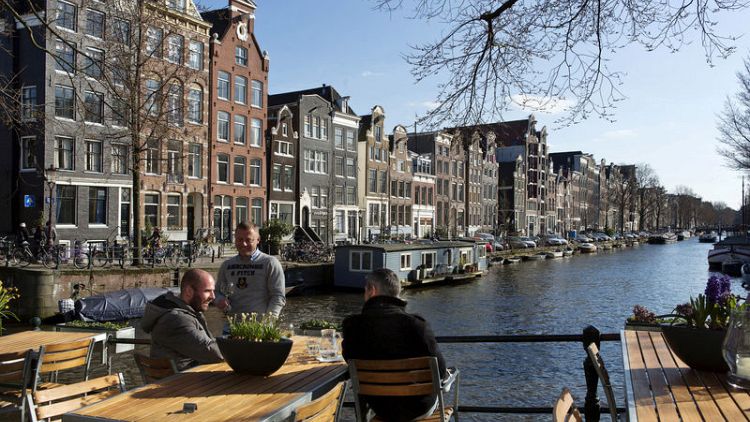AMSTERDAM (Reuters) - The Dutch government is considering pouring billions of euros in a new investment fund to finance future infrastructure and education projects, a source close to the government said on Thursday.
The government would consider borrowing up to 50 billion euros (£45.4 billion)for the fund as it looks to profit from historically low and even negative interest rates on its loans, Dutch newspaper De Telegraaf reported earlier on Thursday, citing government sources.
Plans for the fund are still under discussion as the government is finalising its 2020 budget plans and the amount invested in it could still change, the source told Reuters on condition of anonymity.
The four parties in the government coalition were still looking for ways to guarantee the responsible use of the fund over the years, the source said, focusing on long term projects such as infrastructure, science and technology.
The government will present next year's budget plans on Sept. 17.
Growth in the Netherlands, the euro zone's fifth largest economy, has outperformed its peers in recent years, but looks set to weaken due to Brexit, a looming recession in Germany and U.S. trade policies.
After years of austerity following the financial and European debt crisis, the Dutch government is currently running a budget surplus and has been steadily lowering its debt.
But, like Germany, it is often criticized by economic institutions such as the International Monetary Fund for not investing enough in projects that would strengthen its economy and stimulate growth elsewhere in the euro zone.
As in other major markets, yields on Dutch government bonds with a maturity of up to 30 years have tumbled into negative territory on worries about weak growth and speculation about central bank easing, which means the government is in fact being paid to borrow.
Finance Minister Wopke Hoekstra said last month he would look at ways to use negative bond rates to increase investments, without making specific promises.
On Wednesday Germany, which has also been toying with the idea of debt-financed spending to help stimulate its economy, sold 30-year bonds with a negative yield for the first time, a milestone for a fixed-income market where the entire curve now yields less than zero.
(Reporting by Bart Meijer; Editing by Raissa Kasolowsky)
